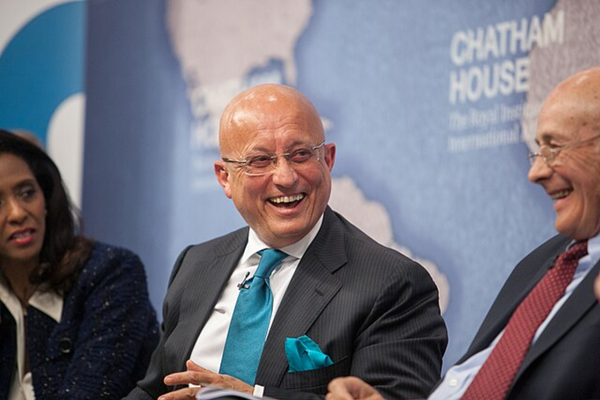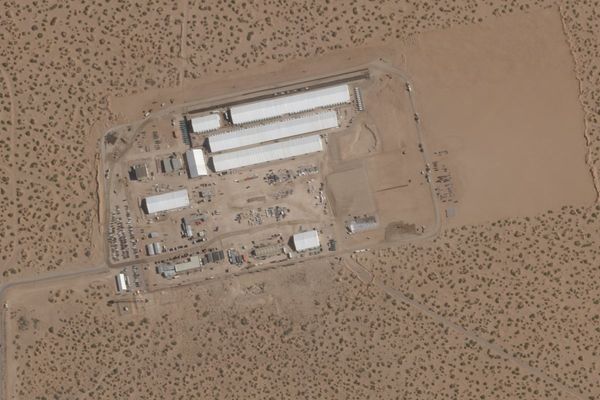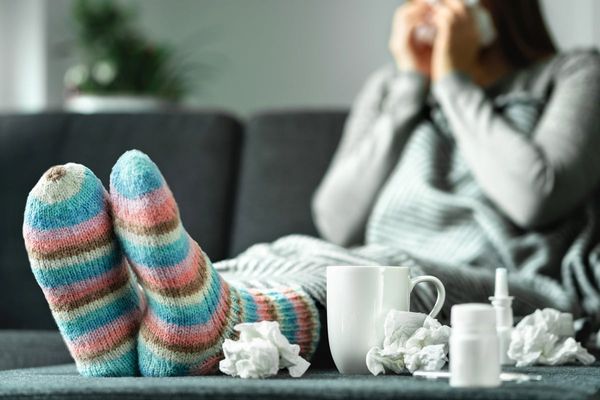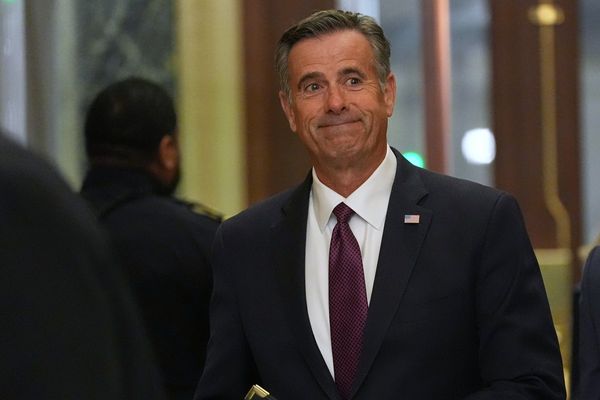
When the police pulled up, lights blazing, Aaron* and his partner were cycling through Sydney, exercising to break up the monotony of last year’s Covid lockdown.
The pair had no reason to think they were doing anything wrong. They were clearly exercising and had taken care to stay within 5km of their home in inner Sydney.
A highway patrol car pulled the pair over. The officers deemed that they had crossed a local government area line into Bayside LGA. Aaron didn’t know such a boundary existed.
“We tried to tell him ‘we had no idea, we feel like we’re within 5km’, but he wasn’t having any of it and he fined us $1,000 each.
“No warning, no nothing,” Aaron told Guardian Australia.
“That’s when it struck me, I thought ‘wow, there’s such differences in the way police are enforcing this across different LGAs’, because in the city everyone was just everywhere. How are you going to enforce it in the city?”
For Aaron’s partner, the consequences could have had a lasting impact.
“It’s a huge fine,” he said.
“But the main thing was that my partner was a law student, and when you’re a law student and you get fined or convicted of anything, when you go to the bar you have to disclose everything you’ve had, from a parking offence to a Covid fine.”
Determined to fight the fine, the pair engaged lawyers from Redfern Legal Centre and sought a review. Their first review was rejected.
Their second was made on the same grounds, but sent to a different part of government. The fines were withdrawn.
“Our argument didn’t change. We believed we were doing the right thing according to the law at the time, and the law was so fluid … how were you meant to keep on top of it?”
Their experience is not unique. Lawyers representing many of the tens of thousands of residents in NSW who were fined for breaches of public health orders say the state’s enforcement has been riddled with problems. In some cases fines have been issued erroneously and reviews have given wildly varied results.
Rohan Pank was fined in August 2021 for sitting in a park 1km from his home while taking a short break from exercising, he said, while Sydney was in lockdown. Weeks later, the government would clarify that “sitting for relaxation” was considered outdoor recreation.
Pank filed two reviews and received wildly different responses. One suggested he was fined because he was away from his place of residence without reasonable excuse; the other that he had crossed into the City of Sydney from Newtown. The rules at the time allowed him to be 10km from his home for certain purposes, regardless of LGA.
Both reviews failed and Pank took his case to the NSW supreme court, along with two other plaintiffs, with the help of Redfern Legal Centre. The test case, if successful, could have consequences for tens of thousands of other NSW residents fined by police.
“Maybe I’m not the most disadvantaged person who’s been affected by it, but I’m trying to stand up for everyone and stand up for people who can’t stand up for themselves,” Pank said.
Within days of initiating proceedings, the fine against Pank was withdrawn. No reason was given to Pank.
“It’s completely ridiculous,” he said. “The average person can’t afford to [lodge supreme court proceedings]. It’s not feasible, so I think it’s so ridiculous that it takes that amount of work and effort, and all these people behind the scenes, just to get someone to look at it and enforce the rules correctly.”
But critics say there’s something even more pernicious about the state’s approach to Covid enforcement. Community legal centres warn the enforcement has disproportionately hit the most disadvantaged and vulnerable.
“It’s extremely alarming, but not surprising, that the police hit communities with high numbers of people facing disadvantage with the most fines,” said Community Legal Centres’ NSW executive director, Katrina Ironside.
“First Nations communities and lower-socioeconomic communities really bore the brunt of Covid-19 policing and fines. The experience of community legal centres also suggests marginalised and disadvantaged groups such as people experiencing homelessness and people with psychosocial disability were disproportionately issued fines during the pandemic.”

Roughly 3,000 Covid fines have been issued to children aged 10-17 in NSW, most commonly for failing to comply with a direction under the public health act, and usually for amounts of $1,000. That includes children in out-of-home care, children with intellectual disabilities, with mental health conditions or who were experiencing interrupted schooling.
Guardian Australia revealed this week that some children were being placed on work and development orders (WDOs), a program that allows participants to use unpaid work, training, or rehabilitation courses to work off their fines. Last month, in rejecting a call from legal groups to convert the children’s fines into cautions, the NSW government instead proposed that the children could be placed on WDOs or extended payment plans.
The fines are also having a significant impact on Indigenous Australians.
Data obtained by the Redfern Legal Centre, which shows a breakdown of enforcement across LGAs, shows areas with significant Indigenous communities have received the largest volume of fines per capita. That includes Brewarrina, Coonamble, Gilgandra, Moree Plains, Walgett, Bourke and Gunnedah.
The Aboriginal Legal Service NSW this week warned that some of its clients were having their driving licences cancelled, an action that had significant ramifications for an already disadvantaged cohort.
An alliance of community legal centres have repeatedly called for the state government to cease chasing debts, citing the impact on disadvantaged groups and the clear problems in enforcement. The state government has so far shown no willingness to change tact.
Roughly 45,000 fines issued in 2021-22 are now overdue, according to NSW government data, and the vast majority are being enforced.
In a statement, Revenue NSW denied that its review system was inconsistent and said individual cases were complex. It said it “encourages customers to reach out to discuss individual circumstances and reasoning behind final decisions”.
It said WDOs were optional for customers and not imposed on anyone and don’t always involve unpaid work.
“Types of unpaid work include activities such as volunteering at a community event, packing away equipment at their sporting ground, assisting in a canteen or refereeing a sporting match,” a spokesperson said.
The agency said it provides support for vulnerable customers and has a range of alternatives to payment, including, in some cases, a waiving of the debt. The agency employs a First Nations team, does not impose driving licence sanctions as a first course of action, and was proactively contacting vulnerable customers, including children, to discuss their fines.
“Help is available and Revenue NSW is here to support customers,” a spokesperson said.
“Revenue NSW has a range of options available to help people who are having difficulty paying their fines. Customers are urged to call Revenue on 1300 138 118 to discuss their unique circumstances.”
Aaron has a message for people like him, who have received fines they believe are incorrect.
“If they have a good case, if they weren’t 20kms away from their house, they should be fighting,” he said. “Because these are very weak and fluid laws and most people wouldn’t have had the capability to understand as they were happening in real-time.”
* Aaron is a pseudonym used to protect anonymity.







